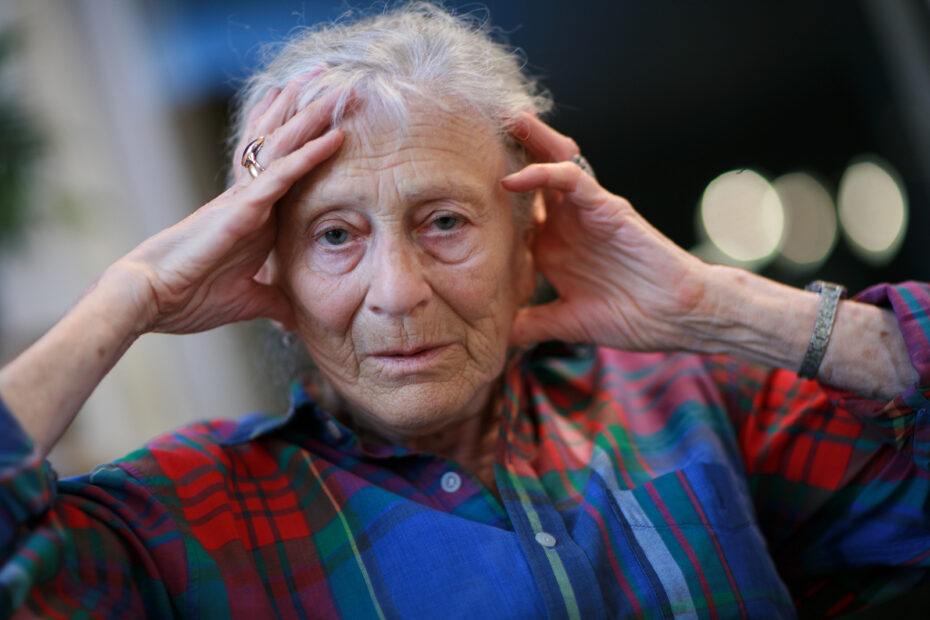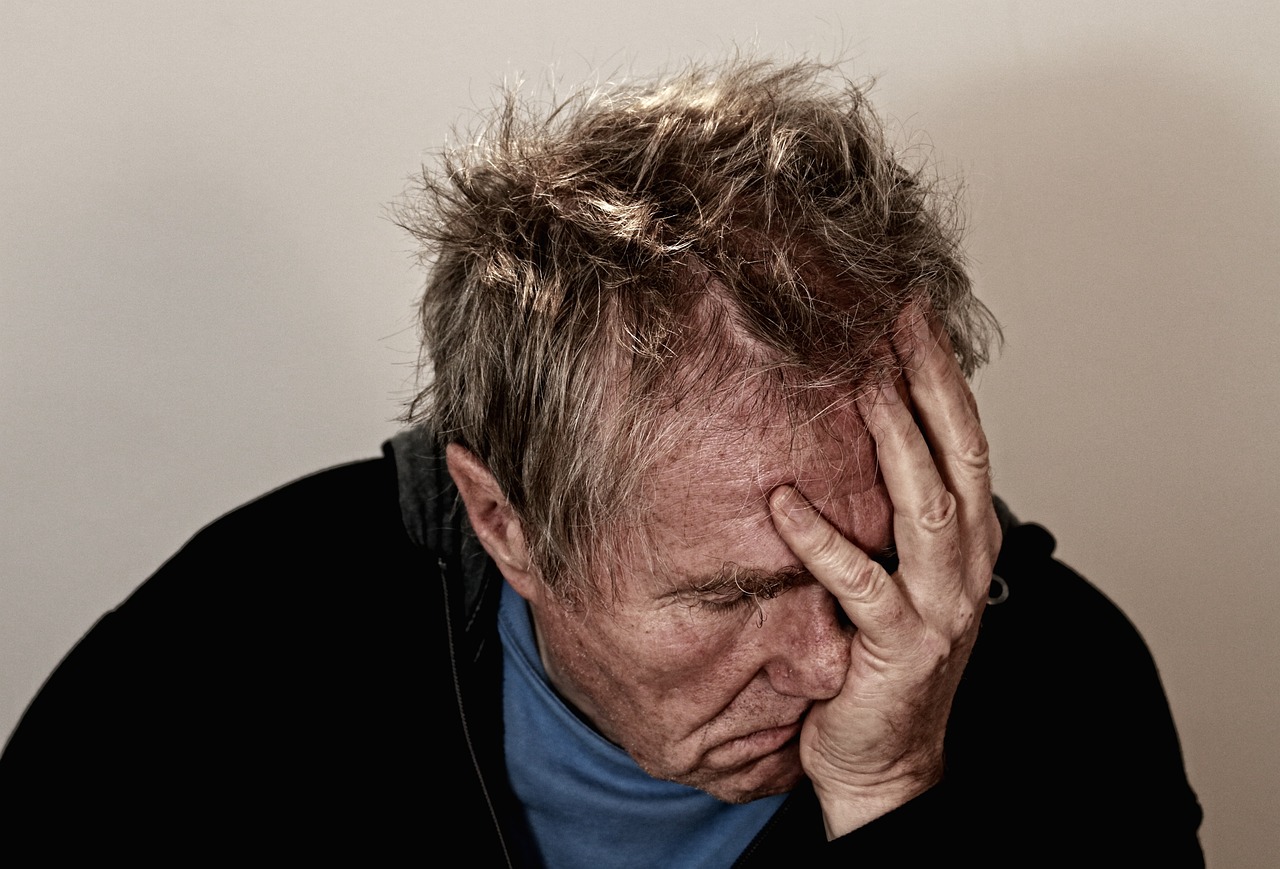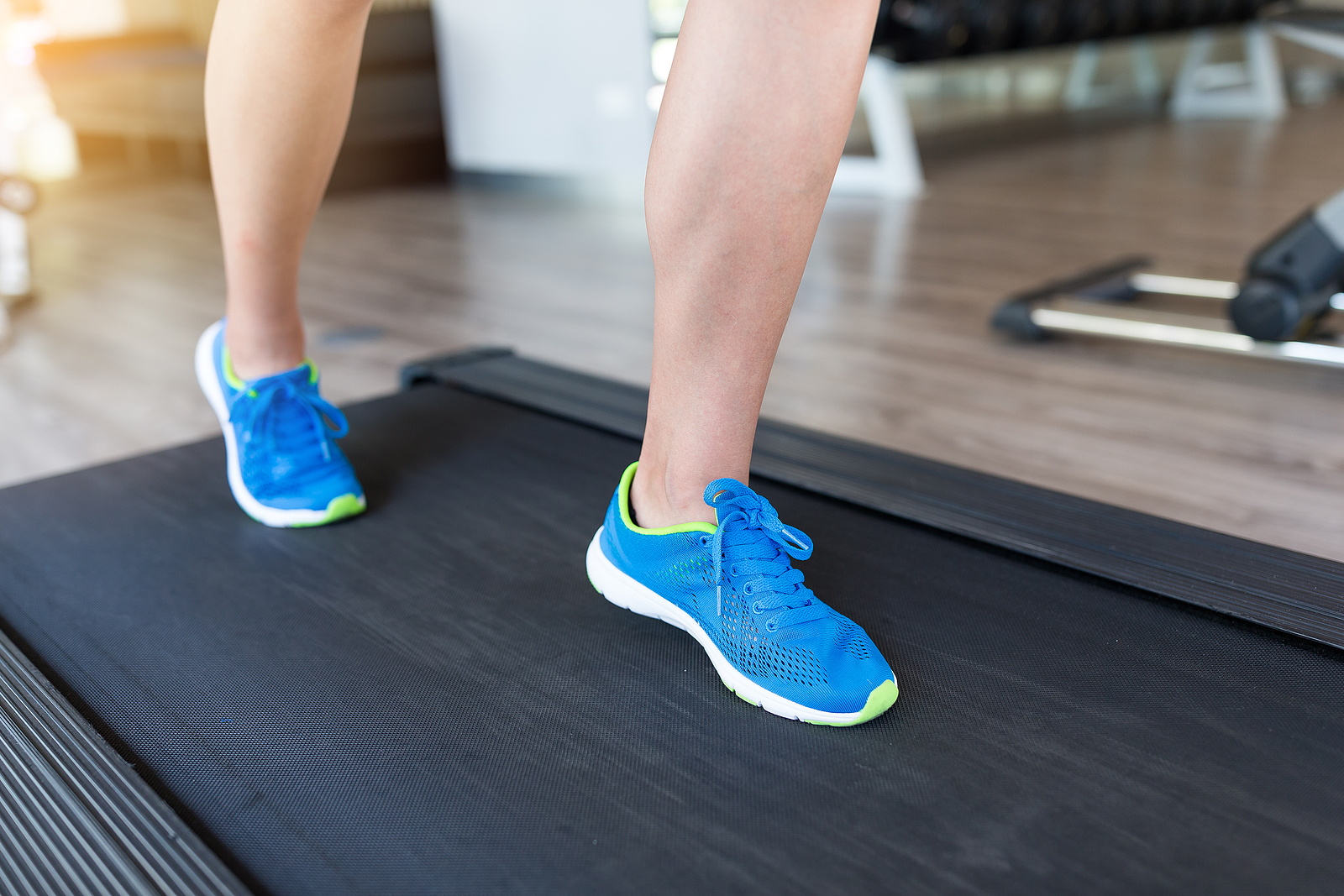Dizziness and vertigo are terms often used interchangeably, but they refer to different sensations and have distinct causes.
And unfortunately, both conditions are quite common in seniors and both can increase the risk of falls and serious injuries.
So, understanding the difference between vertigo and dizziness, their causes, and how to prevent falls is important for maintaining safety and independence.
In this article, we’ll go over the subtle differences between vertigo and dizziness, as well as discuss their common causes.
We’ll also talk about some practical tips for fall prevention regarding both conditions.
But first things first…
What is Dizziness?
If I asked 5 different seniors to define dizziness, I’d probably get 5 different answers.
This is because dizziness is a hard sensation to describe and it can mean different things to all of us.
Dizziness is really a general term used to describe a range of sensations, including lightheadedness, feeling faint, unsteadiness, or a sense of being off-balance.
I’ve also heard dizziness described as feeling a little “off” or even “fuzzy-headed”.
Dizziness can be caused by various medical issues, making it challenging to pin-point the cause.
It’s also a common complaint among seniors and can vary in intensity, from mild disorientation to severe imbalance that affects daily activities.
What is Vertigo?
Vertigo, on the other hand, is a specific type of dizziness.
Vertigo is characterized by the sensation that you or your surroundings are spinning or moving when there’s no actual movement.
This spinning feeling can be mild or intense and often comes with nausea, vomiting, and difficulty walking or standing.
Vertigo is usually associated with issues in the inner ear (vestibular system) or the brain, where the body’s balance system is regulated.
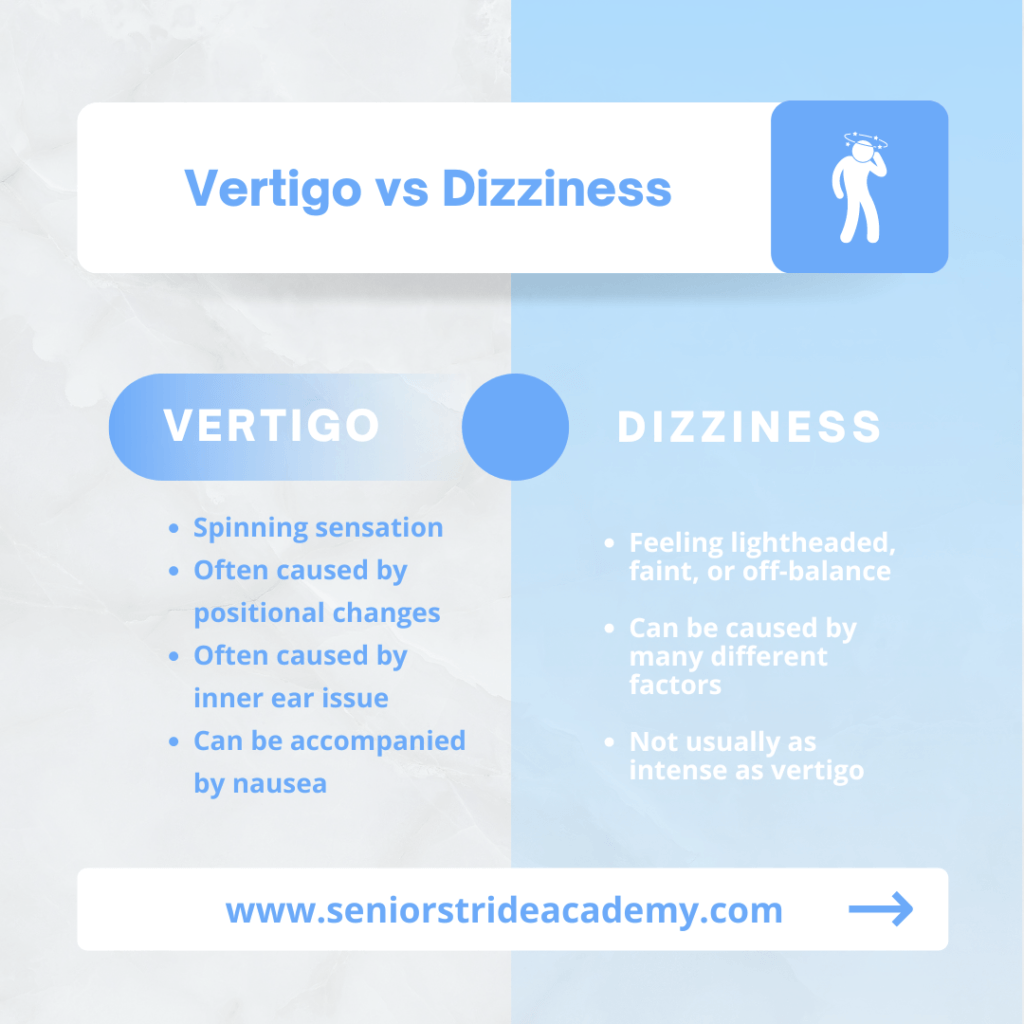
Key Differences Between Vertigo and Dizziness
- Sensation: Dizziness generally refers to a sense of unsteadiness or lightheadedness, while vertigo specifically involves a spinning or whirling sensation.
- Causes: Dizziness can be caused by a wide range of factors, including dehydration, blood pressure changes, or medication side effects. Vertigo is often caused by inner ear disorders (like Benign Paroxysmal Positional Vertigo (BPPV), Meniere’s disease, or vestibular neuritis) or a neurological disorder.
- Symptoms: Dizziness might involve a general feeling of imbalance or wooziness, whereas vertigo usually includes a spinning sensation, often accompanied by nausea and difficulty with coordination.
If you’ve ever experienced true vertigo, you’ll likely never forget it – it’s a very uncomfortable sensation.
The sensation that the room is spinning around you can be quite unsettling and is usually more severe than your garden variety dizziness.
Vertigo can often include feeling nauseous too, something that doesn’t normally come with dizziness.
Simply put – vertigo is a specific, often severe, kind of dizziness.
You can also think about it like this: all vertigo is dizziness, but not all dizziness is vertigo.
Common Causes of Dizziness and Vertigo in Seniors
- Inner Ear Disorders: Conditions like BPPV, Meniere’s disease, and vestibular neuritis are common causes of vertigo. These disorders affect the balance mechanisms in the inner ear, leading to the characteristic spinning sensation.
- Medications: Many medications commonly prescribed to seniors, such as blood pressure drugs, sedatives, and antidepressants, can cause dizziness as a side effect. Medications can interact with other medications as well, resulting in the sensation of dizziness.
- Low Blood Pressure: If your blood pressure is too low, it can make you feel weak, fatigued, and dizzy. A sudden drop in blood pressure upon standing (orthostatic hypotension) can cause dizziness or lightheadedness, increasing the risk of falls.
- Dehydration: Seniors are more prone to dehydration, which can lead to dizziness due to reduced blood volume and decreased blood pressure.
- Cardiovascular Issues: Heart conditions, such as arrhythmias or heart failure, can impair blood flow to the brain, leading to dizziness or fainting spells.
- Neurological Conditions: Disorders like Parkinson’s disease, stroke, or multiple sclerosis can affect the brain’s ability to regulate balance, leading to dizziness or vertigo.
- Vision Problems: Vision changes due to aging, such as cataracts or glaucoma, can affect depth perception and balance, contributing to the sensation of dizziness, especially when walking.
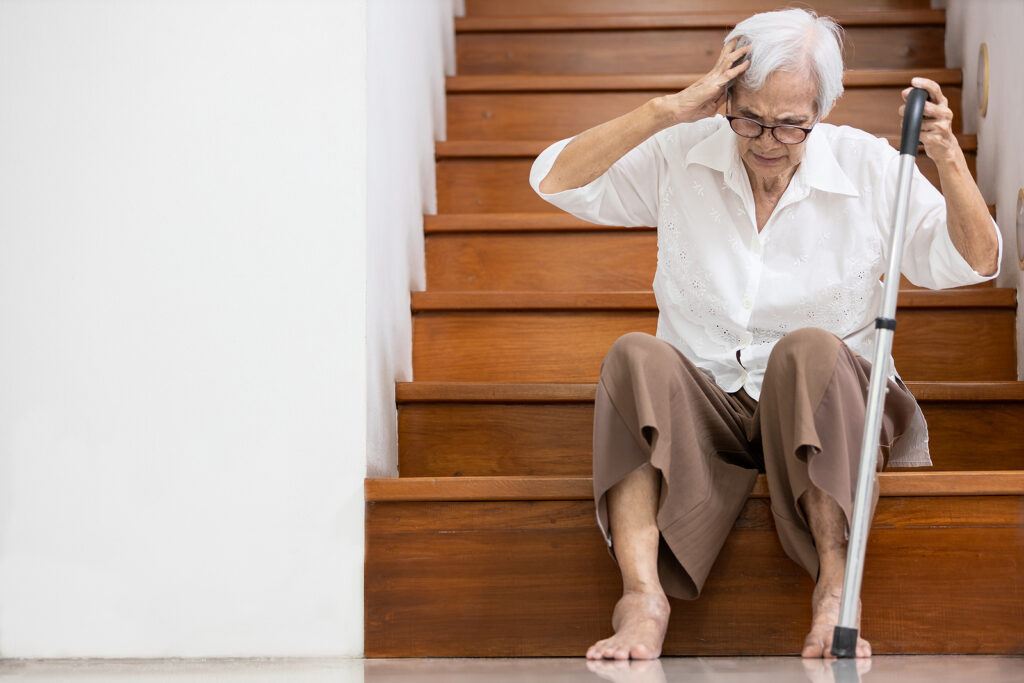
Fall Prevention Tips for Seniors with Dizziness or Vertigo
Given that both dizziness and vertigo can lead to falls, it’s important to take proactive steps to prevent accidents.
Here are some practical tips:
1. Consult a Healthcare Provider
If you’re experiencing frequent dizziness or vertigo, it’s important to consult with a healthcare provider immediately to identify the underlying cause.
They may recommend tests, medications, or therapies to manage your symptoms.
Keep in mind, dizziness can be a sign of a more serious underlying health issue, so the sooner you go, the better off you may be.
And if your dizziness is coming from a medication related side-effect, your doctor may be able to prescribe a different medication to resolve your symptoms all together.
Keeping your vision as sharp as possible can also be beneficial with reducing dizziness.
Ensure that your prescription glasses are up to date, and consider using multifocal lenses if needed.
2. Modify Your Home Environment
If you’ve made an appointment with your doctor, but are still waiting to be seen, you can start off by making a few safety changes to your home.
Clearing pathways of clutter, loose rugs, and other obstacles is a good place to start.
You can also ensure that your home is well-lit, especially in hallways, staircases, and entryways, to help you see and avoid potential trip hazards.
3. Use an Assistive Device
If dizziness or vertigo affects your balance while walking, consider using a cane, walker, or other device to provide additional support.
These devices can help you maintain stability and reduce the risk of falling while on your feet.
Sometimes it can be hard to tell if you need a walker, but when in doubt, go ahead and use it – it’s always better to be safe than sorry.
4. Stay Hydrated
Dehydration is a common cause of dizziness in seniors.
Make sure to drink enough fluids throughout the day, especially in hot weather or when you’re active.
Drinking plenty of fluids throughout the day sounds easy enough, but it can be surprisingly challenging to get seniors to hydrate.
Between the physiological and cognitive changes that can occur with aging, seniors often have decreased thirst and hunger.
This means they might not feel thirsty, even though their bodies are dehydrated.
Individual needs will vary, but when in doubt, shoot for 6-8 glasses of water (or other healthy liquids) a day.
5. Stand Up Slowly
If you experience dizziness when standing up, start by taking your time.
Move slowly from a lying or seated position to standing, and pause for a moment to let your body adjust before walking.
Orthostatic hypotension is very common in seniors and the dizziness felt when standing is often short-lived, so transferring slowly can be a potent tool to reducing fall risk.
You can also try doing a few leg exercises while seated (or lying down) to get the blood flowing and maybe even increase your blood pressure a little before standing.
Sometimes this can help reduce the dizziness sensation with standing.
Final Thoughts
Alright, I think that about does it.
It’s important to discern between vertigo and generalized dizziness because vertigo usually comes from a very specific cause.
So, if it can be determined that you’re experiencing vertigo (spinning sensation), it’s usually easier to find a treatment.
Speaking of which, the most common cause of vertigo is BPPV, which is very treatable with therapy exercises.
So if you’re experiencing vertigo (or other dizziness when lying down in bed), let your doctor know and they can get the ball rolling with the appropriate treatments.
Dizziness, on the other hand, can be more vague and difficult to figure out.
Overall, dizziness and vertigo are distinct sensations with different causes, but both can significantly impact your balance and increase the risk of falls, especially for seniors.
Understanding the differences between these conditions though, can make it a little easier to get the proper treatments.
If you’re experiencing persistent dizziness or vertigo, don’t hesitate to seek medical advice to identify the underlying cause and develop an effective management plan. With the right treatment, you can often treat the issue and return to a safe lifestyle.
I hope you found this article helpful and if you have any questions or comments, please leave ’em below and I’ll get back to you shortly.
